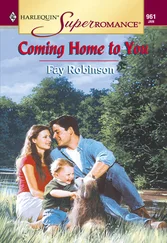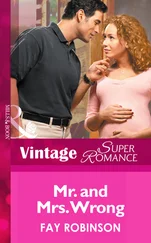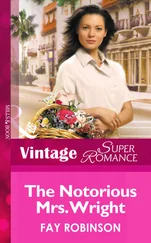“He used to run a shop here on the property with my grandfather and uncle. They made furniture. For the past fifteen years, he’s lived in a little town called Lineville and worked for a trucking company. He and my mother are divorced.”
“Sorry,” she said with a grimace. “I assumed your dad was at work. Am I being too nosy? I find your family fascinating.”
“No, no problem. The breakup was economic more than anything. The business wasn’t profitable anymore, so after Granddaddy died, my dad wanted to move to the city. My mother didn’t. At first he was pretty good about coming home on weekends and holidays, and they tried to keep the marriage going. But over time the visits got more infrequent and then stopped. I haven’t seen him in three or four years.”
“That has to be tough.”
“Everyone took it hard when he moved out, especially my brother Joe who was only seven and particularly close to him.”
“How old were you?”
“Fifteen. I’m the oldest.”
“So that made you the man of the house?”
He shrugged as if it were no big deal, but Susannah didn’t believe that. Fifteen—thrust into adulthood… The situation must’ve been difficult for him.
He walked down the steps and motioned for her to follow.
“Get your sketchbook and I’ll look at it,” he said, striding over to her truck.
“You mean you might reconsider teaching me?”
“No, but if you want my opinion on your work, I’ll give it.”
WITH HER SKETCHBOOK under her arm, Susannah fell in next to him, trying to keep up with his long strides as they made their way down the driveway. She thought he’d head to a cabin on the right, but instead he turned left toward a long barn.
“My studio’s over there,” he said.
The air was crisp and smelled of sawdust, and in the fading light she could see piles of the stuff rotting behind the building. Snow had begun to fall again.
“This used to be my dad’s workshop,” Ryan explained. The long structure had double barn doors in the middle and a regular door to the left, with an opening below for a pet to go in and out. He opened the smaller door and they went inside. “I needed a large space nearby so I closed in the sides, added plumbing and a floor and made a workshop and apartment.”
Susannah had expected something rustic and dark, considering the exterior, but when he flipped on the lights, she couldn’t hold back her surprise. The interior was spacious and airy, as modern as any dwelling in a big city.
“Wow! This is wonderful.”
“It works well for the business and for me personally. I’m close enough to take care of my mother and grandmother and for them to help me with Nia, but I have my own space and privacy. At least, I feel the illusion of privacy.”
The main floor was his workshop. Long plywood tables made an L along one side and across the back, holding projects in various states of completion. Sketches and vibrant paintings covered the walls. The stairs on the left led to a loft where he lived.
He showed her around the main floor. Shelves under the tables held glass jars filled with tiny tiles of every conceivable color and hue. Larger tiles were stacked in bins along the right wall.
“Do you use commercial tiles or make your own?” she asked, as they walked through the kiln room.
“Both. It depends on the project and what I’m trying to accomplish. If I can’t get the color, texture or durability I’m looking for, I’ll make my own. A good part of my business is restoration, which involves hand-making or painting tiles to match older or antique ones. I often have to experiment with pigments, glazes, bisques and firing techniques.”
“You do all the work here?”
“Mostly. I create manageable sections of tile by attaching it to a special backing I designed myself. When the whole piece is done, I ship, reconstruct and install. I prefer to work from scratch on-site, but that’s not practical because of the time and expense involved.”
They came back to the main room and he showed her his office, in the corner area by the stairs. Papers were strewn haphazardly on his desk, as well as the light table. Everywhere, actually. The whole office needed a good tidying.
A white Persian cat lay stretched out on top of a tall bookcase, and it watched Susannah with eyes like gold jewels, expression haughty.
“Hello,” Susannah called up. “What’s your name?”
“That’s Abigail,” Ryan supplied. “I thought it would be good for Nia to learn responsibility for taking care of a living thing, but I have a suspicion Abigail owns us and we’re her pets rather than the other way around.”
“Cats can be a bit independent. She’s so beautiful.”
“She knows it, too.”
He took Susannah’s jacket and flung it over a chair, then shed his own. Grabbing a rubber band out of his desk drawer, he drew his dark hair off his face, into a ponytail.
“Do you wear your hair long because you’re Native American?” Susannah asked.
“I prefer Indian.”
“Sorry.”
“That’s okay. I’m not offended by Native American. The term is just a little too politically correct for me. Others like it, and that’s fine. And to answer your question, no, I don’t wear my hair long to appear more Indian. It’s vanity. With short hair I look about twelve.”
She smiled at his honesty.
“I thought maybe you were trying to look authentic.”
“To do that, I’d have to cut it to stand up in a ridge along the back of my head down to my neck, and then shave the rest.”
She wrinkled her nose but didn’t say anything.
“That was the style for Cherokee men before about 1800, except for the Long Hair or Twister Clan.”
“I don’t think you’d look too good bald.”
“Neither do I.”
“I’m envious of how long and glossy your hair is. And the color’s gorgeous.”
“I was just thinking the same thing about yours.”
He reached out and picked up a strand, gently rubbing it between his fingertips. She hardly breathed.
“To tsu hwa,” he said softly.
“What?”
“Redbird.” He must have realized he was still touching her, because he suddenly let the hair drop, thrusting both hands in the pockets of his jeans.
“Your grandmother called me that earlier.”
“Consider it an honor. The cardinal, or redbird, plays an important role in our legends.”
“How so?”
“It’s revered by my people. There’s a story behind how the bird got its color.”
She waited, but he didn’t go on. “Well, don’t keep me in suspense.”
“I can’t tell the story like my grandmother can.”
“Your grandmother’s not here. Come on, don’t leave me hanging.”
Finally he acquiesced.
“Years ago the redbird wasn’t red. He was plain and brown. One day, while gathering food for his family, he came upon a hurt wolf lying on a riverbank. The wolf had chased a raccoon up a tree and the raccoon had sneaked up on him while he was exhausted and plastered his eyes shut with mud. Thankful for the bird’s compassion in helping him remove the mud, the wolf broke open a paint rock, a geode left from a volcanic eruption, and used it to give the bird a bright red coat. When the redbird flew home, his mate was so excited by his new color, she wanted some for herself. But she was afraid to leave their babies too long so she went and got only a little bit of the paint for herself. She was a good mother and hurried back to the nest. Today redbirds are symbols of beauty, kindness, compassion and dedication to family.”
Susannah was thrilled to be compared to the little bird. She’d always hated her hair color, but he’d made her see it in a whole new way.
“That was so lovely. How do you say ‘redbird’ again? To-tso…”
Читать дальше












